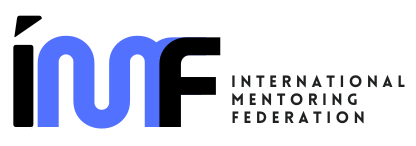IMF Competencies
At the International Mentoring Federation (IMF), we have developed a set of Core Competencies to guide and enhance the practice of mentoring professionals worldwide. These competencies are designed to provide a framework for understanding the essential skills and approaches utilized within the mentoring profession, as defined by the IMF.
Our Core Competencies and Definition of Mentoring:
The IMF Core Competencies, along with our definition of mentoring, serve as the cornerstone of our credentialing process, ensuring that our members uphold the highest standards of professionalism and effectiveness in their mentoring practice. We define mentoring as a collaborative partnership that empowers individuals to achieve their personal and professional goals.
Organized into Four Domains:
The IMF Core Competencies are organized into four domains, each representing a distinct aspect of effective mentoring practice. These domains are structured based on commonalities and interdependencies between competencies within each domain. Unlike a hierarchy, there is no weighting assigned to any domain or individual competency; each competency is considered equally essential for demonstrating competence as a mentor.
Continuous Improvement and Growth:
We recognize that mastery of these competencies is an ongoing journey for mentoring professionals. As such, we provide resources and support to help our members continually enhance their skills and effectiveness as mentors. Through professional development opportunities, ongoing education, and peer collaboration, we empower our members to excel in their mentoring practice and make a meaningful impact on their clients’ lives.
Discover the 4 Domains of the IMF

A. Foundation
1. Demonstrates Ethical Practice
Understanding and consistently applying ethical standards is paramount in mentoring practice. Our mentors demonstrate personal integrity and honesty in all interactions with clients, sponsors, and stakeholders. They maintain confidentiality, respect clients’ identities and beliefs, and uphold the core values of the IMF.
2. Embodies a Mentoring Mindset
A Mentoring mindset is characterized by openness, curiosity, flexibility, and client-centeredness. Our mentors acknowledge clients’ responsibility for their choices, engage in ongoing learning and development, and remain aware of cultural influences. They utilize self-awareness and intuition to benefit clients and prepare mentally and emotionally for sessions.
B. Co-Creating the Relationship
3. Establishes and Maintains Agreements
Partnership with clients in establishing clear agreements is essential. Our mentors explain Mentoring processes, reach agreements on appropriate boundaries and responsibilities, and collaborate with clients to establish Mentoring plans and goals. They manage session time and focus, ensuring alignment with clients’ desired outcomes.
4. Cultivates Trust and Safety
Creating a safe and supportive environment is key to effective mentoring. Our mentors seek to understand clients within their contexts, demonstrate respect for their identities and perspectives, and show empathy and support. They maintain transparency and vulnerability to build trust with clients.
C. Communicating Effectively
5. Maintains Presence
Being fully present with clients is crucial. Our mentors remain focused, observant, and responsive, demonstrating curiosity and confidence in working with clients’ emotions. They create space for silence and reflection, fostering deeper client engagement.
6. Listens Actively
Active listening enhances understanding and supports client self-expression. Our mentors consider clients’ contexts, reflect on and summarize client communication, and explore emotions and non-verbal cues. They discern patterns and themes across sessions to deepen client insights.
7. Evokes Awareness
Facilitating client insight and learning is a key role of mentors. Our mentors use powerful questioning and other techniques to challenge clients’ thinking, explore beyond current perspectives, and invite new ideas and reframing. They share observations and insights to foster client learning.
D. Cultivating Learning and Growth
8. Facilitates Client Growth
Partnering with clients to transform learning into action is essential. Our mentors help clients integrate new awareness into their behaviors, design action plans aligned with learning, and celebrate progress and successes. They support client autonomy in setting goals and designing accountability measures.
These Core Competencies represent the essential skills and approaches for effective mentoring practice at IMF. They guide our members in delivering impactful and ethical mentoring engagements, empowering clients to achieve their personal and professional goals.
© 2024, International Mentoring Federation

